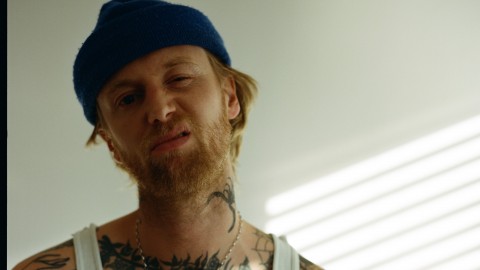
Nigel Lythgoe has stepped back from his role as a judge on US TV series So You Think You Can Dance following allegations of sexual assault made by Paula Abdul.
Abdul filed a lawsuit against Lythgoe, who co-created the US show and also served as a producer on American Idol, on December 29. The suit, which was filed in Los Angeles, made a series of claims during her time hosting both shows, including sexual assault/battery, sexual harassment, gender violence and negligence.
Lythgoe had denied the claims, calling them “false” and “deeply offensive”.
“To say that I am shocked and saddened by the allegations made against me by Paula Abdul is a wild understatement,” Lythgoe’s statement read. “For more than two decades, Paula and I have interacted as dear – and entirely platonic – friends and colleagues. Yesterday, however, out of the blue, I learned of these claims in the press and I want to be clear: not only are they false, they are deeply offensive to me and to everything I stand for.”
It continues: “While Paula’s history of erratic behavior is well known, I can’t pretend to understand exactly why she would file a lawsuit that she must know is untrue. But I can promise that I will fight this appalling smear with everything I have.”
Now, Lythgoe has departed So You Think You Can Dance “entirely voluntarily” in a bid to avoid the allegations overshadowing the show.
“I have informed the producers of So You Think You Can Dance of my decision to step back from participating in this year’s series,” Lythgoe said in a statement.
“I did so with a heavy heart but entirely voluntarily because this great programme has always been about dance and dancers, and that’s where its focus needs to remain. In the meantime, I am dedicating myself to clearing my name and restoring my reputation.”
The 18th season of So You Think You Can Dance is due to begin in March. Fox, which broadcasts the show, and its producers have said in a statement quoted by US media that this will go ahead without Lythgoe.

Abdul’s numerous allegations date back to 2001, claiming that in her first meeting with the American Idol executives, prior to her joining the judging panel, Lythgoe “verbally insulted and belittled” her, calling her a “has been” who “probably wouldn’t be known by the show’s contestants” (per Rolling Stone).
Despite her claims, she went on to join the show in April 2002. But Abdul alleged that she was discriminated against and paid less than her fellow male judges and that Lythgoe and the show’s production bullied her.
According to the lawsuit, during one of the show’s “initial seasons” Lythgoe allegedly sexually assaulted her in the elevator of a hotel room they were staying at while traveling for one of the show’s auditions.
It went on: “Lythgoe shoved Abdul against the wall, then grabbed her genitals and breasts, and began shoving his tongue down her throat. Abdul attempted to push Lythgoe away from her. When the doors to the elevator for her door opened, Abdul ran out of the elevator and to her hotel room. Abdul quickly called one of her representatives in tears to inform them of the assault.”
Abdul claims she chose not to speak up about the allegations over fear of retaliation from Lythgoe, who she said had the power to fire her from her judging posts.
The suit goes on to claim that in 2014, Lythgoe sexually assaulted her again at his home after inviting her for dinner. Abdul attended believing it to be a “professional invitation”.
“Toward the end of the evening, Lythgoe forced himself on top of Abdul while she was seated on his couch and attempted to kiss her while proclaiming that the two would make an excellent ‘power couple,’” the suit claimed. “Abdul pushed Lythgoe off of her, explaining that she was not interested in his advances and immediately left.”
Fearing reprisals, Abdul again didn’t speak out about the claims.
In another claim, Abdul further alleged that she witnessed Lythgoe sexually assault one of her assistants named April while filming So You Think You Can Dance in 2015.
Her suit was filed under California’s Sexual Abuse and Cover-Up Accountability Act, which allows accusers to file certain abuse lawsuits that would otherwise fall outside the statute of limitations within a one-year window.
The post Nigel Lythgoe quits as TV judge following Paula Abdul sexual assault allegations appeared first on NME.






